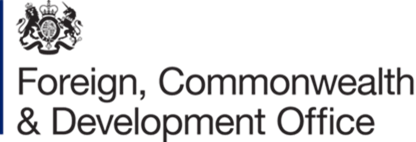The Project
Armed conflict - or the fear of it - is one of the central problems we face in our societies. At ConflictForecast, we want to contribute to peacebuilding by making the allocation of public resources and attention smarter and more efficient. Conflict leads not only to death and destruction but also to the displacement of millions of people from their homes and to migration flows that are difficult to calculate. Armed conflict significantly impedes the cultural, political, and economic development of regions. It is a declared goal of relevant world organizations such as the United Nations, the World Bank, or the International Monetary Fund to better predict armed conflicts and, ideally, to prevent them.
However, there is a problem: preventing conflicts is so complex and multi-layered that we do not know where to focus our attention. As a result, we focus almost exclusively on conflicts that are already underway or have recently ended. The international community is often very active in high-risk countries and usually focuses on economic development rather than conflict per se. And so we stumble from one crisis to the next. The current system is not working. The number of fragile or unstable countries continues to increase, so the existing focus only intensifies.
Our goal is to change this approach in the long term. We specialize in conflict forecasting, prevention, and decision support. Our forecasting methodology is explicitly designed to detect new, subtle signals of conflict risk in countries not currently at war. Detecting these risks is extremely difficult and requires accepting false positives. We then integrate these predictions into a novel policy evaluation tool to assess the tradeoff between the benefits of preventive action and the costs of acting on false-positive signals. Our "Prevention Gains" section shows that the dire costs of conflict justify wasting resources in low-risk settings. Under "Updated Prevention Gains," we provide our best estimate of where resources would go furthest.
/ Research Team
The team is headed by leading academics working at the intersection of political science, economics, and machine learning. We have recently expanded to become a diverse group of social science researchers and industry-standard data scientists. As a team, we are driven to tackle the most challenging humanitarian issues using highly technical analysis that is grounded in conceptual frameworks provided by social science methods.
PRINCIPAL INVESTIGATORS
Hannes Mueller
IAE (CSIC) and Barcelona GSE
Hannes Mueller is a tenured researcher at the Institute for Economic Analysis (IAE (CSIC)), an Associate Research Professor and Program Director for the Data Science for Decision Making M.Sc. at the Barcelona School of Economics (BSE). His fields of interest are machine learning, political economy, development economics, conflict studies and industrial organization.
Hannes’ work has been published in leading journals in economics and political science such as the American Economic Review (AER), the American Political Science Review (APSR), the Journal of the European Economic Association (JEEA) and the Proceedings of the National Academy of Sciences (PNAS). Hannes has also produced research reports for governments, NGOs, the IMF, the World Bank and the UN.
www.hannesfelixmueller.comChristopher Rauh
University of Cambridge
Christopher Rauh is Professor of Economics and Data Science at the Faculty of Economics of the University of Cambridge and a Fellow of Trinity College Cambridge. He is a research affiliate at CEPR, IZA, and HCEO and an external research professor at PRIO. His fields are labor economics and political economy. In his research he combines economic models with the tools of machine learning and data science.
Christopher's work has been published in leading journals in economics and political science such as American Political Science Review, Journal of European Economic Association, and Journal of Public Economics and he has worked on reports for the German Foreign Office, FCDO, and IMF.
www.sites.google.com/site/econrauhBen Seimon
Data science project lead
Ben joined the team as a Data Scientist in October 2022 as part of a collaboration with the Nigeria office of FCDO, UK. His primary role has been to integrate national and grid cell forecasts of armed conflict into a dynamic policy decision-making tool to enable the quantitative evaluation of preventative and de-escalation policies for conflict. He is motivated by the prospect of tackling humanitarian issues with innovative methods from data science, and most importantly seeks to design solutions that deliver actionable insights for policy makers. For the German Federal Foreign Office, his focus will be on developing a method to track climate risk globally with regular updates. He has a keen interest in geospatial analysis and reinforcement learning, holds a BA in Economics (Durham University) and MSc in Data Science (Barcelona School of Economics), and has previous working experience as an Economics Consultant.
AFFILIATED RESEARCHERS
Laura Mayoral
Institute for Economic Analysis and Barcelona School of Economics
Laura Mayoral is a tenured researcher at the Institute for Economic Analysis (CSIC) and a research affiliate at the Barcelona School of Economics. Her areas of interest are political economy, econometrics and machine learning, conflict studies, and development economics. Her work has been published in journals such as Science, the American Economic Review, Econometrica, the Journal of Monetary Economics, the International Economic Review, and the Journal of Public Economics, among others.
DATA SCIENCE TEAM
Sophie Brochet
Sophie is a PhD student in Economics at the Autonomous University of Barcelona and Barcelona School of Economics (IDEA PhD program) with a strong interest in macroeconomics and econometrics. The topics on which she conducts her research relate to labour, sustainability, and policy-making.
Margherita Philipp
Margherita graduated with an MSc in Data Science from the Barcelona School of Economics (BSE) where she wrote her thesis on predicting conflict with the help of text-based data. She is currently exploring ways of forecasting institutional disruption and how data on gender can be incorporated into predictions of state fragility. She has a background in philosophy, politics, and economics and has worked as a monitoring and evaluation consultant on a wide range of projects in the UK and Sub-Saharan Africa. Margherita is especially passionate about topics related to education. She trained as a maths and economics teacher through Teach First, developed a platform matching young people’s career questions with relevant professionals, and holds a MA in Educational Leadership from UCL.
Ramón Talvi Robledo
Ramón Talvi Robledo holds an MSc in Data Science from the Barcelona School of Economics (BSE), having accomplished a thesis in collaboration with the World Bank, where he and his team devised a deep learning model to assess road quality in the Democratic Republic of the Congo using satellite imagery. With a blend of academic interests, Ramón secured a Bachelor's in Economics from the University of the Republic of Uruguay and furthered his studies in Philosophy at both the University Complutense of Madrid and the University of Montevideo. His professional journey has seen him imparting knowledge as a Mathematics and Economics teacher in Madrid and Montevideo, while also serving as a research assistant with ECLAC.
Renato Vassallo
Renato holds a MSc in Economics from the Pontifical Catholic University of Peru (PUCP) and a MSc in Data Science from the Barcelona School of Economics (BSE). He is currently a Research and Teaching Assistant at the Barcelona School of Economics (BSE), exploring the synergies between macroeconomics, econometrics, and machine learning methods. Additionally, he has four years of experience in the government sector of Peru, focusing on Monetary and Fiscal Policy as a Macroeconomic Projections Specialist. His interests are centered around time series forecasting, structural modeling, and public policy. Renato’s work has been published in journals such as Economic Modelling and institutions such as the Fiscal Council of Peru, PUCP, and BSE.
Eric Frey
Eric Frey joined EconAI in November 2023, where he forecasted countries' long-term conflict risk for the UK's Foreign, Commonwealth & Development Office (FCDO). He is currently researching the causal effects of negotiations and agreements on conflict. Eric graduated from the Barcelona School of Economics in 2023 with an MSc in Data Science. His research interests include spatio-temporal forecasting in conflict studies and displacement, natural language processing (NLP), and causal machine learning.
Emmett Sexton
Emmett holds a MSc in Specialized Economic Analysis from the Barcelona School of Economics and a BS in Economics from the University of Wisconsin. Living in Washington, D.C., he spent several years analyzing data that was used in expert economic testimonies across sectors, for public and private clients. His master’s thesis centered on the negative impact that pollution has had on manufacturing employment in India. He has special interests in geospatial data and the negative growth impacts of conflict.
The project has also benefited from past work by Luis Menéndez, Francesco Slataper, Manohar Gannavarapu, Bruno Conte Leite, Elena Aguilar, Lavinia Piemontese, Alex Angelini, Alexandra Malaga and Joan Margalef.
/ Citation
Please cite our work as:
/ Partners
This webpage is financed by the Foreign, Commonwealth & Development Office (FCDO) through the GSRA project "Dynamic Early Warning and Action Model" and the I-Link project of the Spanish National Research Council (CSIC) which makes it possible for us to explain and showcase our forecast methodology to a broader audience and share our results with other research teams.
The main finance of this project comes from the ERC grant “Anticipating the impact of armed conflict on human development” (ID: 101055176) theGerman Federal Foreign Office, and the FCDO. Earlier stages of the project were financed by a theBanco de EspañaaBarcelona School of Economicsseed grant and aFundación BBVAresearch grant. Finance and administrative support comes fromFundació d'Economia Analítica. We have also partnered with theCEPR Preventing Conflictresearch group.
/ Web
This webpage was designed and developed by Jonathan Frishberg, Angel Corral and Jose Espada.
Jonathan Frishberg
Freelance Designer & Creative director atThalamus VR.
Angel Corral
Art director, content strategist and creative director for institutions, brands and individuals. Involved in projects such asSónarandSónar+D, the independent music labelSeeking The VelvelandHighxtarmagazine.
Jose Espada
Javascript full stack developer.joseluis.sword@gmail.com
/ Contact
Contact us at conflictforecast@gmail.com






